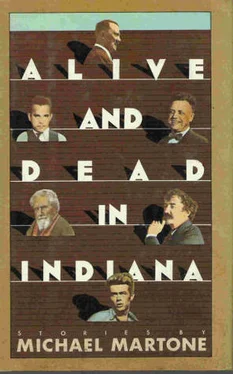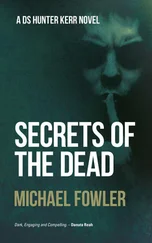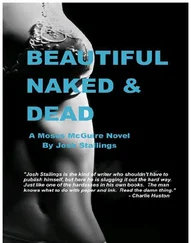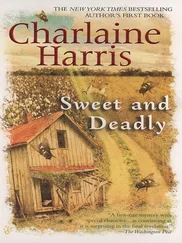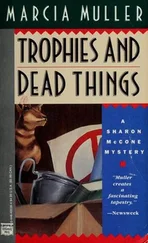Michael Martone - Alive and Dead in Indiana
Здесь есть возможность читать онлайн «Michael Martone - Alive and Dead in Indiana» весь текст электронной книги совершенно бесплатно (целиком полную версию без сокращений). В некоторых случаях можно слушать аудио, скачать через торрент в формате fb2 и присутствует краткое содержание. Год выпуска: 1984, ISBN: 1984, Издательство: Dzanc Books, Жанр: Современная проза, на английском языке. Описание произведения, (предисловие) а так же отзывы посетителей доступны на портале библиотеки ЛибКат.
- Название:Alive and Dead in Indiana
- Автор:
- Издательство:Dzanc Books
- Жанр:
- Год:1984
- ISBN:9781936873500
- Рейтинг книги:3 / 5. Голосов: 1
-
Избранное:Добавить в избранное
- Отзывы:
-
Ваша оценка:
- 60
- 1
- 2
- 3
- 4
- 5
Alive and Dead in Indiana: краткое содержание, описание и аннотация
Предлагаем к чтению аннотацию, описание, краткое содержание или предисловие (зависит от того, что написал сам автор книги «Alive and Dead in Indiana»). Если вы не нашли необходимую информацию о книге — напишите в комментариях, мы постараемся отыскать её.
Alive and Dead in Indiana — читать онлайн бесплатно полную книгу (весь текст) целиком
Ниже представлен текст книги, разбитый по страницам. Система сохранения места последней прочитанной страницы, позволяет с удобством читать онлайн бесплатно книгу «Alive and Dead in Indiana», без необходимости каждый раз заново искать на чём Вы остановились. Поставьте закладку, и сможете в любой момент перейти на страницу, на которой закончили чтение.
Интервал:
Закладка:
It had been there as long as I could remember.
It is late in the day. The pies that Harriet and Eliza made are in the windows. I’m supposed to swipe one and take it off to the soldier’s mess. The sisters search each building, rolling pin at the ready. But the men hide me from my sisters. The visitors scream with laughter as I race from one building to another a step ahead of my pursuers. The visitors are on all the porches, resting on the hand-hewn chairs and benches. The sun is hot. The sky is blue. I make it to the hospital and disappear inside just as the sisters emerge from the southeast blockhouse.
Major Whistler steps out on the porch of his quarters and shouts with command, “What in God’s name is going on here!”
The sisters confide to those nearby that the boy needs a mother, that he’s getting too big to chase after.
Harriet is portrayed as a flirt, though distracted with the care of her father. Her motivation for wishing to see our father married again comes from her own desire to be free to find a husband. She will later marry a Captain Phelan who will be killed in Detroit. She’ll live to 1872. Harriet.
Major Whistler will become the military storekeeper at Bellefontaine, Missouri. He will move with the troops to the new Jefferson Barracks in 1826, and die there in September.
Eliza will go with her husband, Lieutenant Curtis, from here to Detroit to Green Bay. She will have a child in the cradle and one in school when, one day, while washing clothes in a river near Fort Howard, she will be killed by a bolt of lightning. That’s it for Eliza.
Daniel Curtis and I are eating pieces of pie in the hospital. He is there caring for Marshall. The record shows that Curtis served as the fort doctor that summer when there was no one else to do it. Had some training, had some schooling. He was liked by the Indians, having witnessed the speeches at Brownstown in 1810. He was a schoolteacher from New Hampshire.
“Stickney,” he said, “is an opportunist. He is receiving money from the whiskey-traders.”
The pie is very good. Made with berries from our own canes.
It is hard for me to keep from thinking about the futures of these people. I feel sorry for Curtis, though it is years before his wife’s death and his bungling at Fort Howard. He will be court-martialed and discharged.
We sit and eat the warm pie in pieces he’s cut with his knife. We’ve hidden what’s left of it beneath a bunk. The man who plays Curtis winks at me a lot.
The visitors stick their heads in the door. They see us eating the pie in what seems a normal fashion. They see another log building, bare and chinked. The planking has been ripped out by a two-man saw. The only color is the leather fire bucket in the corner. It’s painted blue.
Les says that it would drive him crazy.
“It’s enough for me just to not think about school this fall.”
We are sitting on the riverbank by North Side, down below the concrete levee. The brewery makes the air smell rotten. Cottonwood seeds are floating in the green water. I tell him it’s kind of like living with premonitions all the time or ESP.
“It’s neat knowing everything,” I say.
The clock on the brewery has read twenty after ten since it was sold to a national brewer.
“See,” I say, “they’re going to let that place go right down the drain. Let it all just fall apart.”
Les just grunts and heaves a rock to make the pigeons fly. Cadmium is light blue, I think, and rhodium is red but expensive. Iodine is not really black but violet. A dark violet.
We have been spying on the cheerleaders who are practicing in the parking lot by the school. We watch them from behind the levee as they work on their movements. The way they clap their hands and bounce on their toes. They climb on each other’s knees and backs. They do the type of cheers you like to watch even though you can’t cheer along with them. Splits and flips. They wear red sweatshirts, white skirts.
“Try and explain that to future generations,” Les says. We keep watching through the afternoon, ducking down to the river when we think they’ve seen us. The littlest one is on the top of the pyramid. We see her skirt fly up. She lands on her feet and bounces. Falling with her from all over the formation are the other girls, landing and clapping. They bounce, no longer in unison. Applaud what they’ve done. Then they do the pyramid cheer again.
I like to think the painter Whistler didn’t paint a picture of his father because he was like me. He didn’t trust his memory, was only comfortable with a model sitting in front of him. He was my age when his father died, and he’d just started drawing.
I have a collection of postcards with reproductions of his paintings and his etchings. Les says if I have etchings, I should tell the cheerleaders to come around and take a look.
They are pictures of docks and streets in France and England — highly detailed — panes in the windows and reflections in the glass. The portraits are all very sad, though I can see that they are beautiful. They are titled after their colors and compared to music.
Arrangement in Black and White.
Blue Nocturnes.
Things like that.
The picture of his mother has a picture hanging on the wall that I can barely make out. I think it is another one of his pictures. I can’t imagine what he looked like. George, I mean. Sideburns, I guess. A high collar? The Czar took a ruler and drew a straight line from St. Petersburg to Moscow.
“Do this,” he said.
And Whistler did.
His father, Major Whistler, and B. F. Stickney are having it out near the gate. Everyone draws in, the garrison as well as the remaining visitors, who feel better about what is happening around them now. This is all made up, they are thinking.
“How dare you, sir! How dare you!” Stickney is saying.
The Major produces maps and indicates lands deeded by the treaty of Greenville to the Richardville clan of the Miami in perpetuity.
“There are white settlers on the land, Mr. Stickney. Here and here.”
I see my father in the crowd, listening to what’s going on.
I guess it looks like a dispute at home plate, both benches emptied.
Soldiers are moving in with muskets. They begin breaking through the crowd. Lieutenant Curtis holds the two men apart. His hat is knocked off his head. “Gentlemen! Gentlemen!”
I edge over to my father, who asks me what’s going on. I tell him about what Stickney’s been up to, selling land to families up from Kentucky, paying off the tribes, and getting the money back by tripling the whiskey prices on payment day.
I can smell the copper.
He has just come from the plant, so it’s strong and mixed in with my own smell and the smell of the wool uniforms that only get washed once a week since that was regulation. My dad begins to ask me another question, but then I can see he starts to understand the way things work. So he waits for me to speak first.
He probably stopped by to give me a ride home, probably got across the bridge without paying since it’s close to closing.
My eyes are very tired and I can’t wait to take them out. I mean the contacts. I don’t think I’ll ever be able to wear them as long as they say you’re supposed to.
The soldiers are pushing us all back with their muskets now. The braid on their shakos is loose. There is an eagle and a white cockade. The hats make the soldiers look taller.
My father takes a few steps back. His tie is loose but still knotted.
This is the first time he has seen the fort. I point out the gardens and the pickets and the Pennsylvania key, notched in the corners of the buildings. Cars are going by on Spy Run. Flashes of color. Engines are revved high. People are on their way home from work. We stand there on the edge of the crowd, my dad and I, listening to an argument that was settled a long time ago.
Читать дальшеИнтервал:
Закладка:
Похожие книги на «Alive and Dead in Indiana»
Представляем Вашему вниманию похожие книги на «Alive and Dead in Indiana» списком для выбора. Мы отобрали схожую по названию и смыслу литературу в надежде предоставить читателям больше вариантов отыскать новые, интересные, ещё непрочитанные произведения.
Обсуждение, отзывы о книге «Alive and Dead in Indiana» и просто собственные мнения читателей. Оставьте ваши комментарии, напишите, что Вы думаете о произведении, его смысле или главных героях. Укажите что конкретно понравилось, а что нет, и почему Вы так считаете.
